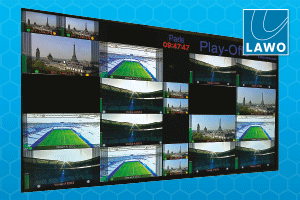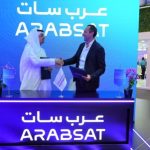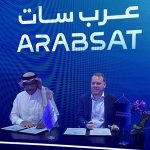EgyptSat is one of the few companies in the Arab world known for manufacturing satellite-related products at its own factory in the region. Founder and CEO Dr Mohamed Elghamry, who is also dean of applied research at the Arab Academy for Technology, explains how products from the EgyptSat stable are enabling quick connectivity.
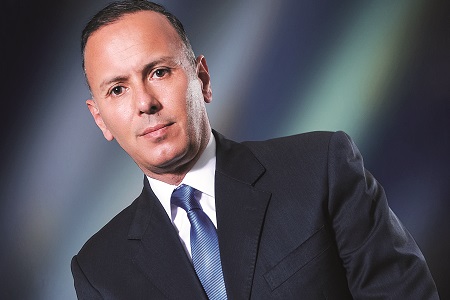 Tell us a bit about Egyptsat
Tell us a bit about Egyptsat
Egyptsat is a private satellite communications company. We have our own satellite teleport in Egypt and operate our own VSAT hubs. However, we use space capacity from different operators such as Arabsat, Eutelsat and Intelsat, and also work closely with several telecom partners. Our core service is delivering a value-added satellite communication solution. At the same time, we also have our own in-house research, development and production facility.
How long have you been operating in this market?
We started in 2002. So, its been almost 20 years now.
Back then, we were a Value-Added Reseller (VAR) for Hughes in Europe and the Middle East, and this was operated from Griesheim, Germany. At that time, we managed to make a good network of clients operating all over the Middle East. Many of them were big organisations such as the United Nations, UNDP and so on. In 2004, we decided to start on our own service and were one of the early companies in the Middle East to buy an iDirect hub and deliver satellite connectivity in the region. We were one of the early players to offer two-way VSAT internet services from our own network in the Middle East. Before that, the Hughes service was only available from Greisheim. This was a unique solution at that time.
How do you differentiate yourself from other providers in the market?
There are many players in the market that have their own VSAT hubs and operate a similar service to ours. What makes us unique is that we have developed an ultra-fast, self-deploying VSAT antenna that adds extra value to our service. It takes less than 10 seconds for our antenna to find a satellite while most others from international vendors typically take two to five minutes or more.
I do not know of any other company in the region that designs and manufactures their own SNG antenna. There may be a few in Israel, but not anywhere else in the Middle East, even though ours is still faster and more precise.
This antenna is beneficial to anyone who relies on satellite connectivity. It is ideal for disaster recovery activities, where you need quick deployment of the satellite communication equipment. In this case, the antenna can be deployed in less than 10 seconds and provide high performance.
Likewise, TV broadcasters who have live events in different locations at different times, will need to be up in a few seconds. So, their antenna needs to find a satellite quickly and start transmitting the broadcast in a very short period.

A decade ago, we supplied our antenna to all the ten airports in Egypt as part of a massive project to build a disaster recovery network. Whenever there is an earthquake, like the one that happened in Syria or in Turkey, all communication cables and fiber in the airport, for instance, are the first to be disconnected. The most feasible communication solution in such cases is satellite communication through the self-deploying antenna mounted on top of a car that can go into the disaster area. Once the operator presses the button, itll point the antenna to the satellite and establish communication within 10 seconds.
They can immediately start broadcasting what is happening inside the airport so that the ministry can monitor and secure all the Egyptian airports.
The antenna is operator agnostic. The software is configured to find any satellite in the sky. So, the menu will open with all of the satellites in the sky. A subscription or coordination with the satellite operator will give you a frequency for your antenna to start working. We have secured bandwidth with most satellite operators like Arabsat, Eutelsat and Intelsat among others.
Its very similar to the 5G antenna that you use from different vendors in Europe. We manufacture it at our production unit in Egypt, where we have a 12,000sqm facility spanning four floors, with R&D, operations, production and manufacturing. It is a very advanced manufacturing facility with all the latest equipment to produce the equipment.
Another solution we are building is the WebX speed accelerator. Internet traffic over satellite is not compressed, which means you pay a lot of money for capacity instead of maximising its potential. You are sending something that could potentially take much less time and capacity. So, we designed a software that is essentially a web accelerator. It compresses the traffic over the satellite, which means you can utilise triple the speed for which you are paying. It is these in-house solutions offered in addition to our service to make them faster and more reliable that make us stand out.
We also produce an Automated Guided Vehicle (AGV) robot for use in factories to lift heavy loads. The one we have designed can lift up to 2,000 kg, and this one was developed for the ABB production factory in Egypt. We also design EOD robots for military and police forces in Egypt.
How many people do you have in your company?
We have around 45 people between engineers, operations, support, and so on.
What are the big sectors you target?
Oil and gas, mining, military and telecom are the main ones. For the telecom sector, we offer backhauling services especially to companies in Egypt. We also offer video conferencing for situations, where there is no fiber connectivity and there are no other means of communication.
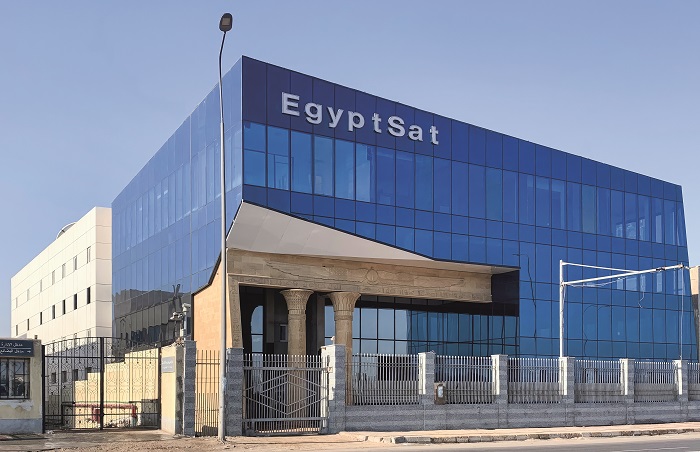
Most of the Gulf areas do not offer a license unless you have your own hub inside the country. This is true for even big companies like SpaceX. The market is very restricted in the Gulf, where they protect the national companies and telco operators. Whenever there is a monopoly, there is no pressure on a company to bring prices down. Competition compels companies to bring in better technology at higher speed and lower cost. Sadly, that is still to come to this region.
So we have moved into markets where they dont have good infrastructure such as Iraq and Libya.
I hear you have developed an electric vehicle?
Yes, we have recently received the golden license from the prime minister of Egypt to manufacture an Electric Vehicle (EV) in Egypt. It has been designed by our team with many futuristic features while it is also well connected with a lot of iOT applications inside. We have presented this vehicle to the Prime Minister of Egypt and have received a golden license to build this car in the country. It will be mass produced in six months. There are plans to export it to international markets as well.
We have a few categories planned starting with a city car that can run at 60km/hr for a distance of up to 200 km on one charge, and this car will be priced at $3,000. The second category will be a family car that can run at 150 km/hr for a distance of 300 km on one charge and this model will be offered for $12,000.
How many antennas do you manufacture each month?
Around five to ten. Its not much but its enough to cater to the needs of our clients. But we are building a much larger facility for our automotive idea. The automotive factory will be around 50,000 sqm.
What are some of the challenges in this market and is Leo a threat to the VSAT business?
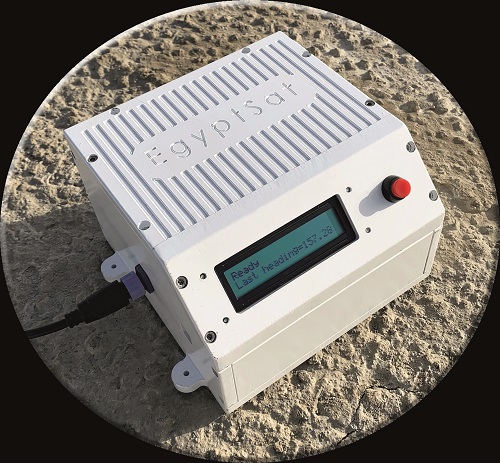 No, I dont think LEO is a threat to our business. This is the future of satellite communication. Our aim is to adapt. Our biggest strength is the Egyptian market. So, we start everything in this country and then expand to others in the region. You cannot bring a very expensive product to the Egyptian market, where the ARPU is very low. But there is great opportunity for the right products in this market and the low-cost, high-speed connectivity that LEOs offer is ideal for this country.
No, I dont think LEO is a threat to our business. This is the future of satellite communication. Our aim is to adapt. Our biggest strength is the Egyptian market. So, we start everything in this country and then expand to others in the region. You cannot bring a very expensive product to the Egyptian market, where the ARPU is very low. But there is great opportunity for the right products in this market and the low-cost, high-speed connectivity that LEOs offer is ideal for this country.
So LEOs are not a challenge. We are looking to partner with companies in this space to bring the best connectivity to Egypt.
Whats your background?
I have an engineering degree from the Arab Academy for Technology in Egypt, and I continue to hold a deans position for applied research there. All the engineers in my faculty or in my college are constantly working on some research programme. Mine has always been on how to develop products that could be designed and produced using local technology, satellite antennas and so on. Designing new products is also my personal hobby. Im 55 years old but most of my team are below the age of 30. They have a more open mind, and we offer them the chance to create, innovate and develop at Egyptsat.


